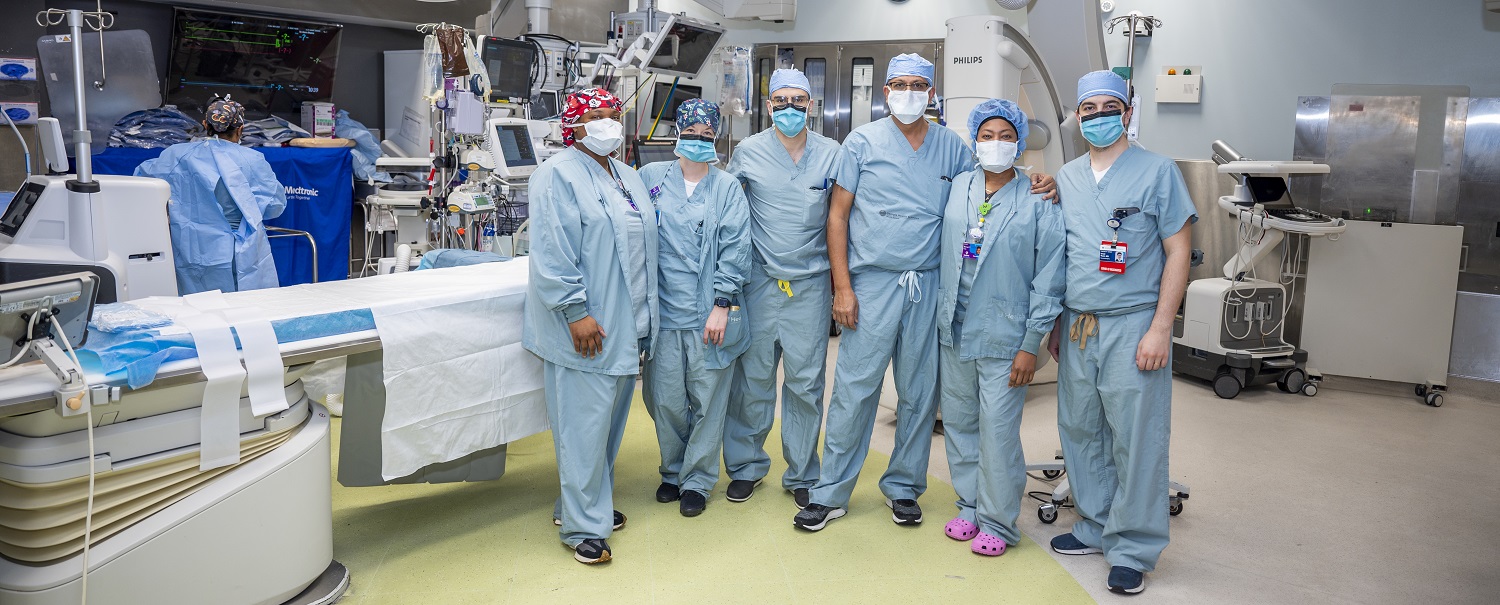
Vascular & Endovascular Surgery
The highly skilled surgeons and team within the Section of Vascular and Endovascular Surgery direct both the medical and surgical care of patients with diseases of the arteries and veins.
Tremendous advances in the last decade have resulted in several new techniques to treat vascular disease, which is a common cause of death and disability. Our team is at the forefront of innovations that include minimally invasive options for limb salvage, prevention of stroke and the repair of aortic aneurysms.
Contact Us
Vascular & Endovascular Surgery | Surgery
Main| 706-721-1606
Scheduling| 706-721-1847
We diagnose & treat the following conditions:
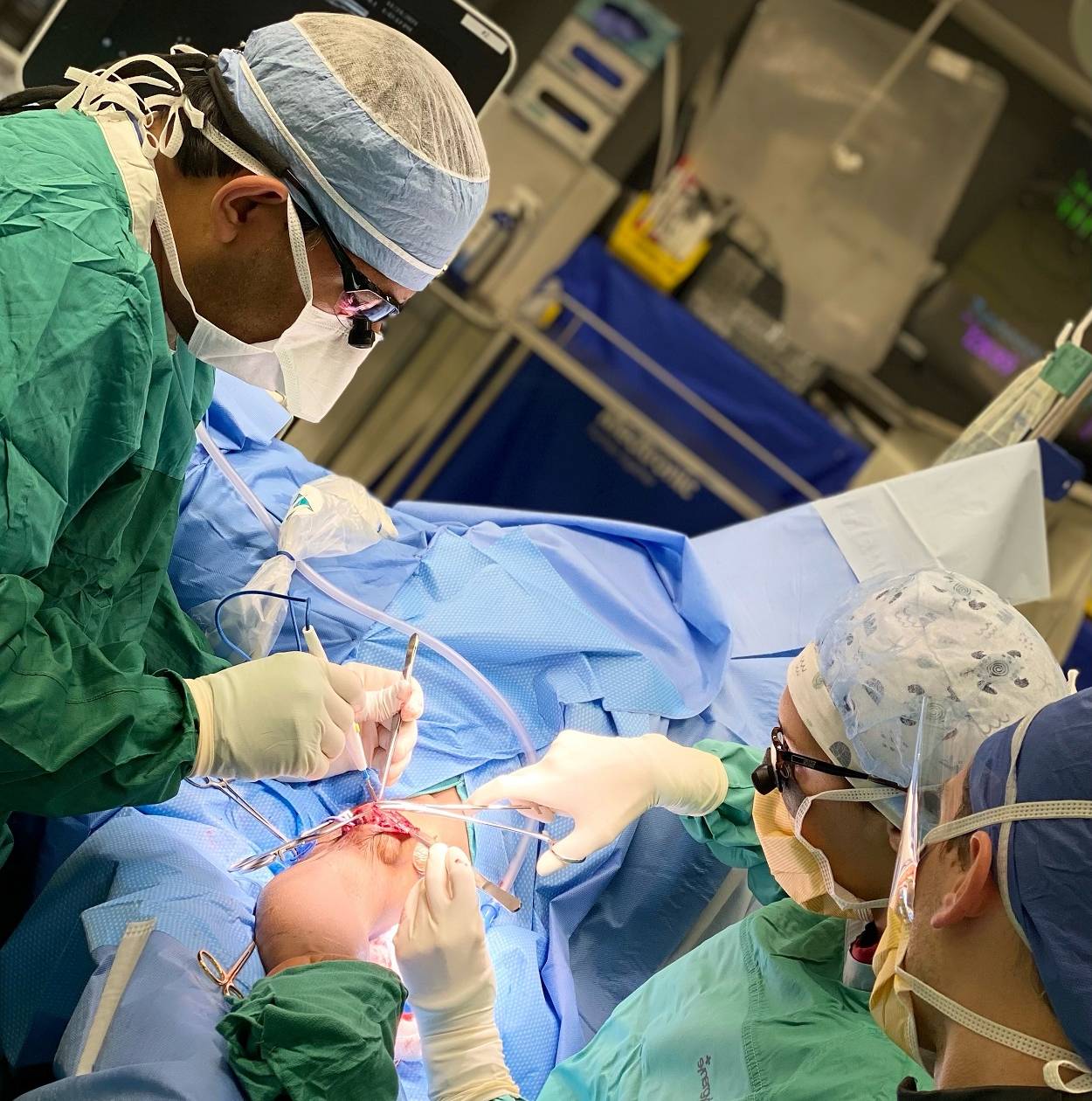
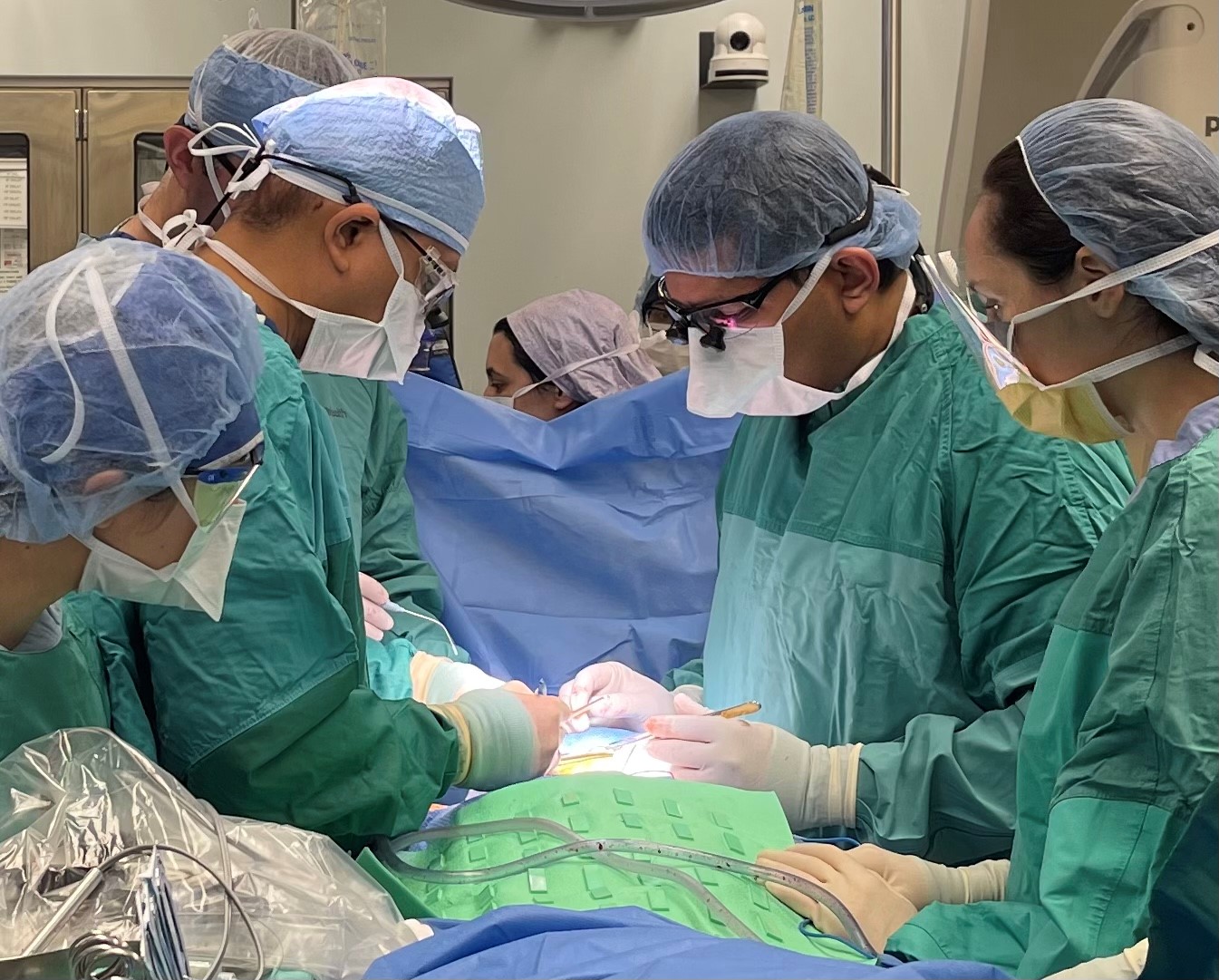
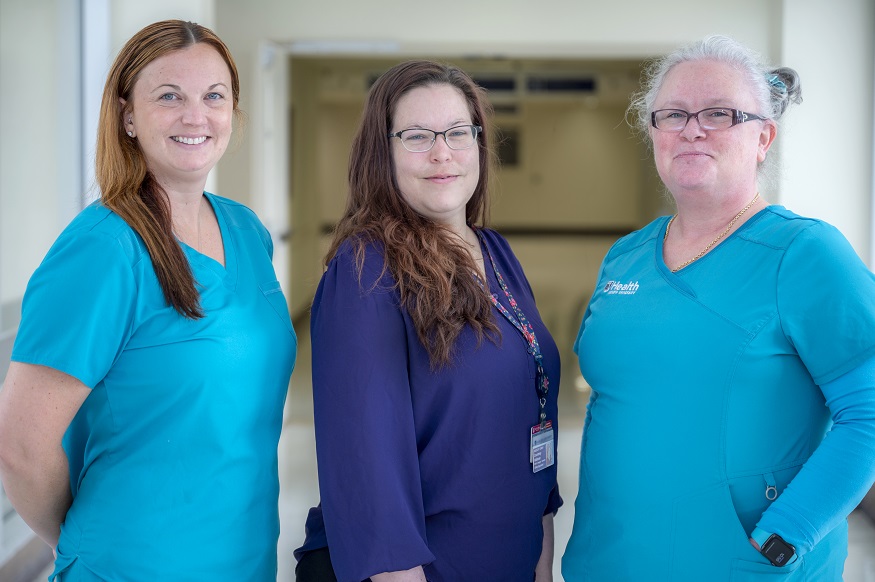
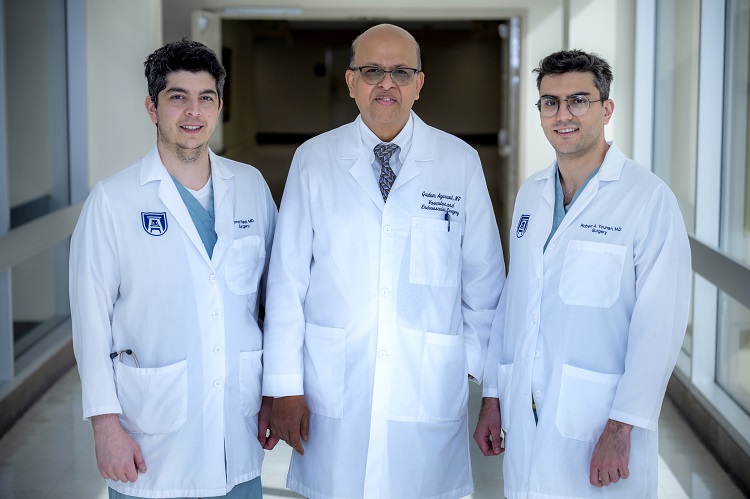
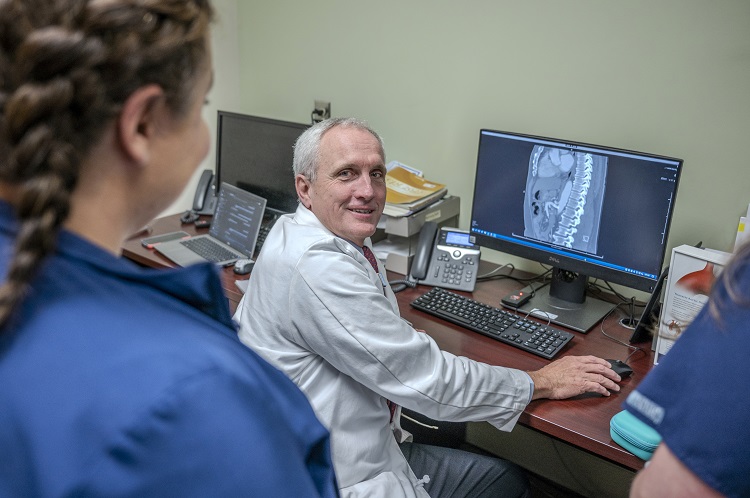
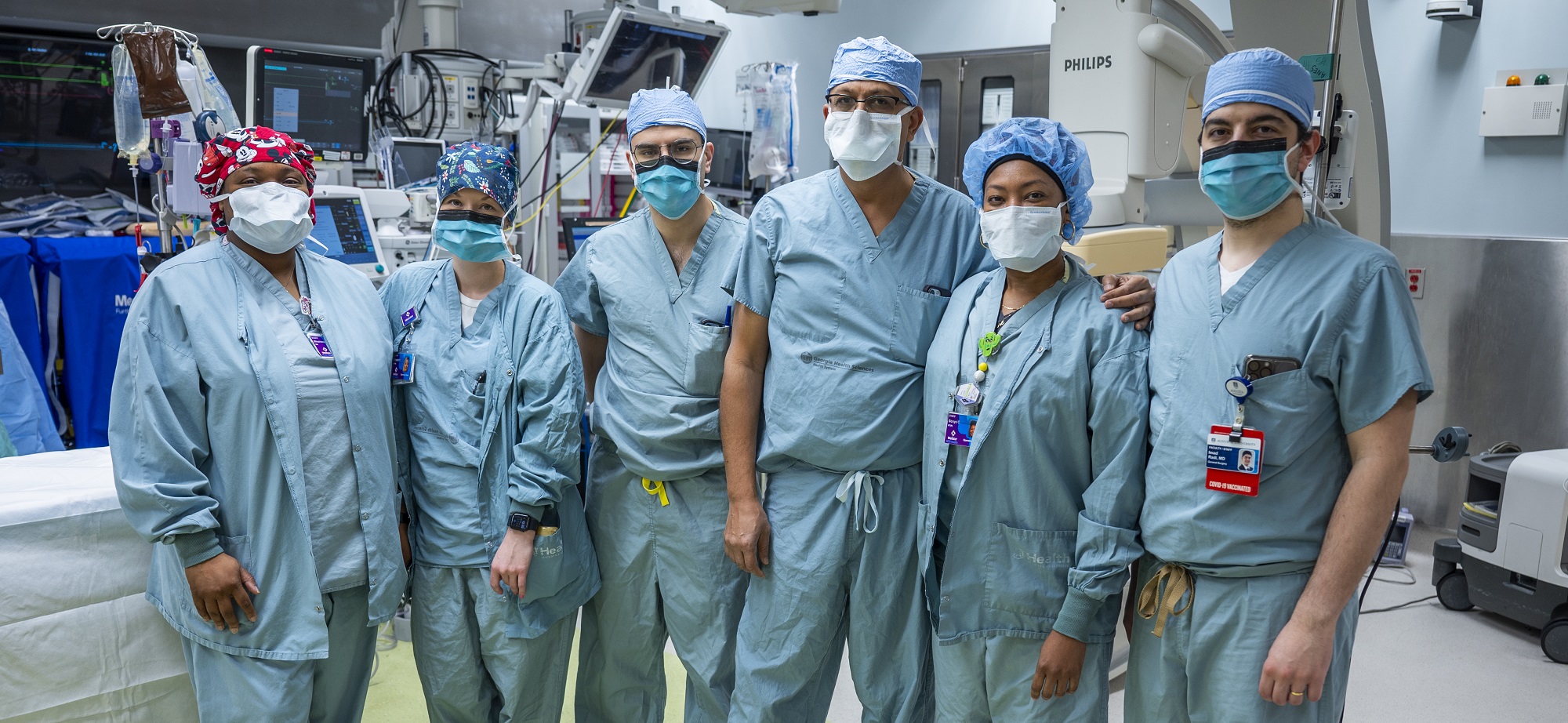
Our surgeons play an integral role in the outpatient dedicated Vascular Lab at the Augusta University Cardiovascular Center, a state-of-the-art facility offering experienced vascular care.
The Vascular surgery team is also actively engaged in research in order to further understand these disorders and improve patient care. Research interests include developing new modalities for treatment of complex aneurysms and diabetic limb salvage. Additionally, we are involved in promoting quality care through our participation in the Vascular Quality Improvement database. Other areas include the treatment of blood clots and arteriosclerosis through medical therapy, minimally invasive endovascular techniques, and surgical reconstruction
The section also serves our veterans at the Charlie Norwood VA Medical center in the treatment of complex vascular conditions, education, and research.